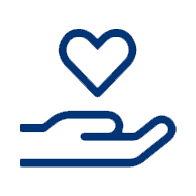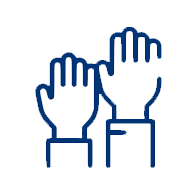Below are some suggestions on how to cope during a panic attack.
- Try not to fight what you are feeling. Often fighting the feelings or pushing them away can actually increase your fear of panic. Try to accept your experience and remind yourself that you are experiencing extreme anxiety that is most likely out of proportion to any actual danger.
- Practice relaxation techniques such as breathing control (for example slow breathing) if these have been helpful for you in the past.
- Reassure yourself that this will pass and if you have experienced a panic attack before, remind yourself of how you got through it.
- Give yourself time. Try not to rush through the panic attack. Some people find it helpful to think of panic as similar to ‘surfing a wave’ – it builds up, peaks, and then washes up on the beach. When you are ready, simply go back to what you were doing.











